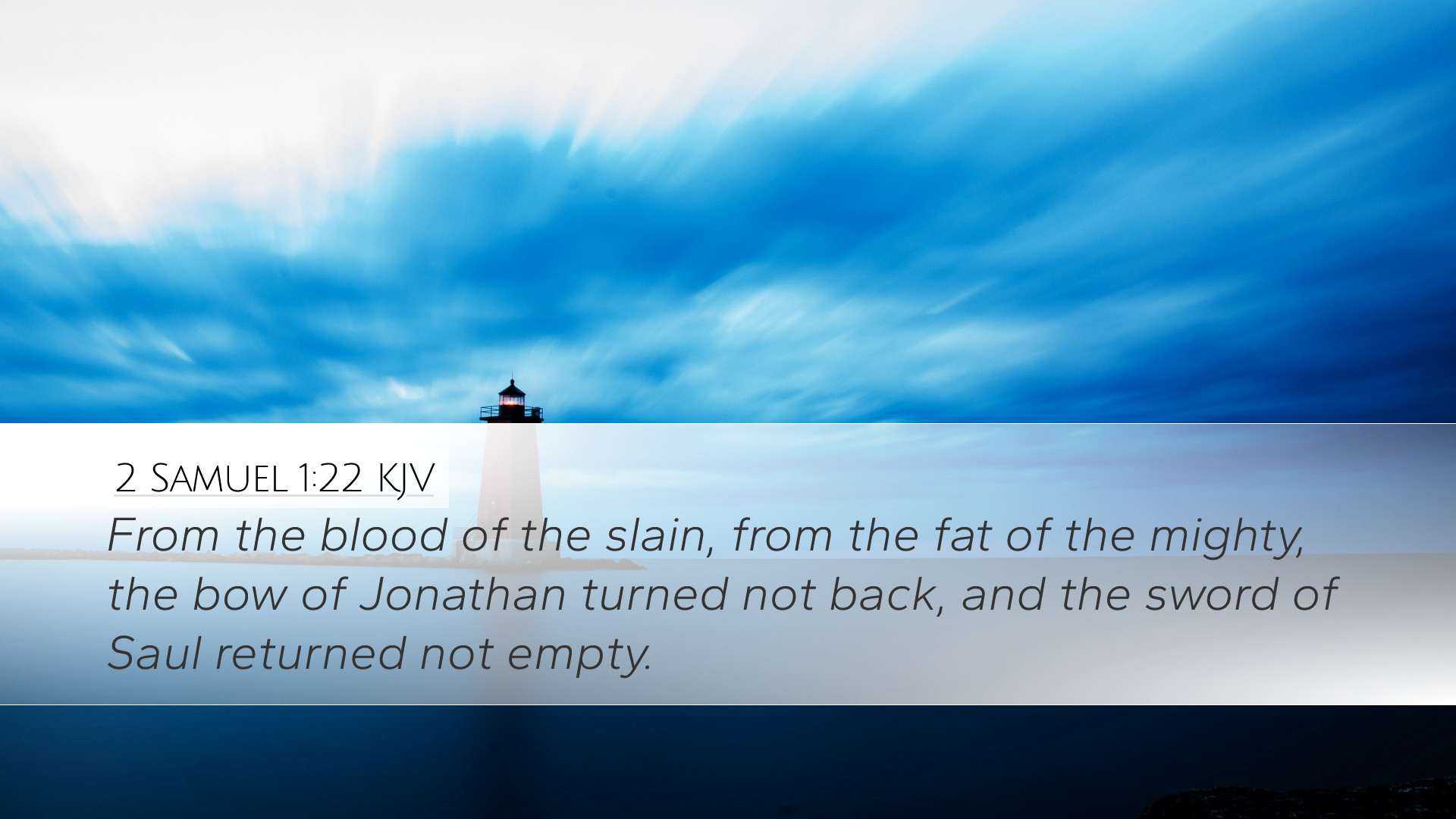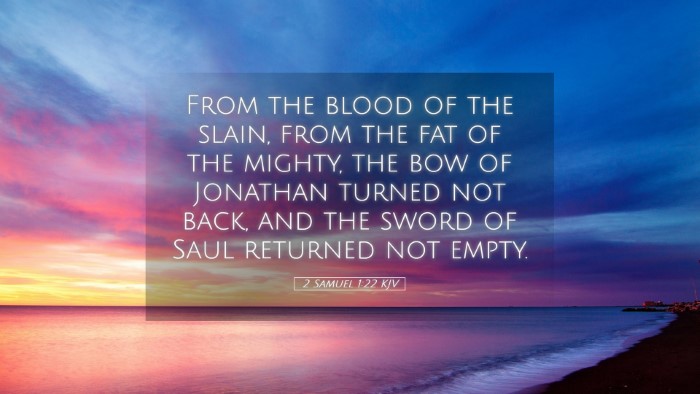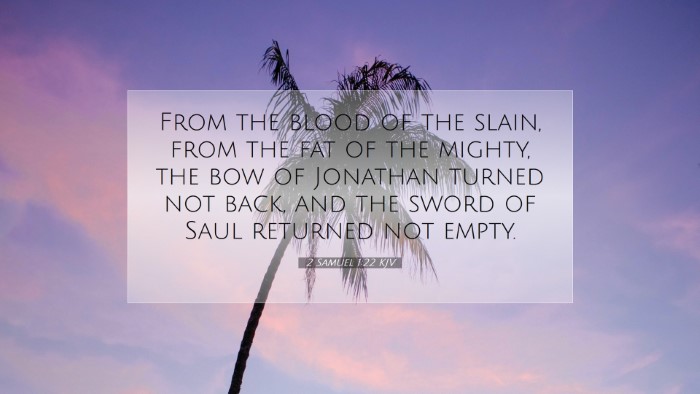Commentary on 2 Samuel 1:22
Bible Verse: 2 Samuel 1:22 (NIV) "From the blood of the slain, from the fat of the mighty, the bow of Jonathan did not turn back; the sword of Saul did not return unsatisfied."
Introduction
This verse presents a profound reflection on the relationship and bond between David and Jonathan, encapsulating both a lamentation of loss and a celebration of their valor as warriors. As we delve into the commentaries by notable theologians such as Matthew Henry, Albert Barnes, and Adam Clarke, we find a rich tapestry of insights that speak to the themes of loyalty, grief, and the weight of personal and national loss.
Contextual Background
To fully appreciate 2 Samuel 1:22, one must consider its context in the narrative of David's ascent following the deaths of Saul and Jonathan. This verse is part of David's lament for Saul and Jonathan, which is recorded in 2 Samuel 1:17-27. David's lament highlights the deep friendship he shared with Jonathan and the tragic fall of Saul, Israel's first king.
Insights from Matthew Henry
Matthew Henry emphasizes the personal element of David's lamentation. He notes that the phrase "from the blood of the slain" illustrates the intensity and seriousness of battle, referencing the grave losses sustained in conflict. Henry highlights that Jonathan's unwavering loyalty to David, despite his father's adversities, underscores a significant spiritual principle—true friendship often transcends the circumstances of kinship and rivalry.
Henry also remarks on the metaphor of the bow and sword, which serve as symbols of might and victory. He interprets this as a recognition of the extraordinary valor exhibited by both Jonathan and Saul, acknowledging that while they faced the enemy, their weapons did not return without a price—signifying the inevitable cost of warfare.
Insights from Albert Barnes
Albert Barnes provides a detailed analysis of the imagery used in this verse. He explains that "the bow of Jonathan did not turn back" reflects Jonathan’s skill and courage in battle, indicating that his efforts were both decisive and impactful. Barnes articulates that this acknowledgment is a tribute to Jonathan's character and unwavering dedication to championing his people, as well as his close bond with David.
Moreover, Barnes articulates the notion that "the sword of Saul did not return unsatisfied" symbolizes the destructive outcomes of conflict. He reflects on Saul’s complex legacy—representing both the trials of leadership and his tragic end. Saul’s sword serves as a reminder of his failures, yet also illustrates the gravity and high stakes of the leadership that David was about to inherit.
Insights from Adam Clarke
Adam Clarke's commentary focuses on the emotional tone of David's lament. He emphasizes the depth of sorrow that accompanies these powerful lines, suggesting that they encapsulate the tragic consequences of the power struggles within Israel. Clarke discusses the implications of this verse within the broader narrative of Israel's history, providing perspective on how David’s lament signifies not only personal loss but also a national tragedy.
Clarke further interprets the phrase "the sword of Saul did not return unsatisfied," elaborating on the notion that warfare comes with a heavy toll. He underscores the deep sorrow felt by David for both Saul and Jonathan, encapsulating the ultimate despair that comes from the loss of loved ones who perish in battle.
Theological Reflections
This verse opens a window into the theological underpinnings of friendship, loyalty, and sacrifice. Pastors and theologians may reflect on the essence of true friendship as exemplified in the relationship between David and Jonathan. Their bond challenges us to consider our commitments to one another, even amidst familial or societal expectations.
Furthermore, this verse serves as a vivid reminder of the fallen nature of humanity. The bloodshed referenced in the text urges readers to engage thoughtfully with the concept of sacrifice and its implications within their own lives. How do we honor the sacrifices of those before us? How can we learn from the conflicts that define our relationships today?
Conclusion
In summary, 2 Samuel 1:22 transcends a mere historical account; it invites reflection on themes of loyalty, loss, and the complexities of human relationships. The commentaries from Matthew Henry, Albert Barnes, and Adam Clarke enrich our understanding by shedding light on the gravity of David's lament for Jonathan and Saul. As we explore this passage, may we find not only profound grief but also an enduring call to honor the bonds of friendship and the sacrifices made for the sake of love and loyalty.


